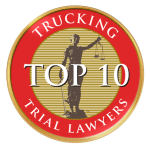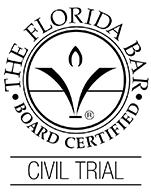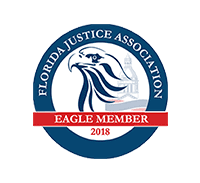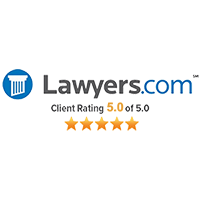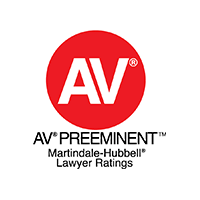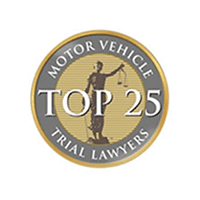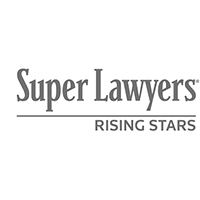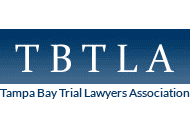The truck driver, his or her employer, the cargo loading company, the truck repair facility, and even the municipality responsible for road maintenance are among the people and entities who can be held liable for a truck accident. In many cases, several of these parties could bear financial liability at the same time.
State and federal trucking laws can be complex, and their implications on your truck accident case can be complicated. A truck accident lawyer can help. They can answer your questions, investigate your case in detail, determine liability, and take on one or multiple insurance companies for financial recovery.
Who Can Be Held Liable for a Truck Accident?
Depending on the situation, many different parties could be considered liable for a truck accident:
When the Driver Is Liable for a Truck Accident
Truck drivers operate massive pieces of heavy machinery and must drive them as safely as possible while sharing the road with similar-sized and significantly smaller vehicles. They can be held liable for the collision if they are:
- Intentionally negligent
- Guilty of distracted driving
- Guilty of drowsy driving
- Performing dangerous maneuvers
- Aggressively driving
- Breaking traffic laws
- Under the influence of drugs or alcohol
- The truck’s owner in addition to being its operator
The driver is typically responsible for inspecting the truck before putting it on the road. If they failed to do so, they could be held accountable.
When the Trucking Company Can Be Liable for a Truck Accident
In some cases, the actions of the truck driver who causes a collision are covered by their company and their company’s insurance provider. If this is true in your case, your truck accident attorney can request compensation accordingly.
The trucking company could also be held accountable if the driver isn’t given proper training or if the accident occurs while they are acting within the scope of their assigned duties.
When Liability Could Fall to the Maker of the Truck or Its Parts
The truck’s manufacturer is obligated to put safe trucks on the road. If a design or manufacturing flaw is the reason for the accident, the company can be liable. Similarly, the company that manufactured the truck’s individual parts and components could bear liability. For example, the manufacturer could be responsible when faulty windshield wipers, faulty brakes, or other mechanical issues cause an accident.
When the Cargo Loader Could Bear Liability for a Truck Accident
Federal Motor Carrier Safety Administration (FMCSA) regulations govern how trucks are loaded. The cargo loading facility could be liable for your accident if:
- FMCSA cargo securement rules are disregarded
- Cargo is imbalanced, improperly loaded, or improperly secured
Inspection records and accident reconstruction reports could help your legal team understand whether the truck’s cargo caused or contributed to the accident.
Additional Parties Who Could Bear Liability for a Truck Accident
Every truck on the road should be in the best possible condition. If the facility responsible for the truck’s routine repair and maintenance didn’t do its job properly, it could also be liable for the accident.
Other potentially liable parties could include a government or municipal agency if flawed or faulty roads (including broken pavement) contributed to the crash. The manufacturer of the truck’s navigational device or GPS could also be liable if erroneous directions played a role in the accident.
How Are Negligence and Financial Liability Proven After a Truck Accident?
A comprehensive investigation into your accident can determine the responsible party by gathering and analyzing evidence. This could include:
- The truck driver’s driving record
- The truck driver’s logbook and hours-of-service report
- The truck’s repair and maintenance charts
- The cargo loading records
- Federal trucking regulations
- Lay and expert witness statements
- Trucking industry expert testimonials
- Accident reconstruction reports
Some of this evidence could be difficult for you to obtain on your own. A lawyer can gather all the evidence and use it to build your case file.
What Kinds of Damages are Recoverable in a Truck Accident?
After a truck accident, you can seek compensation from the responsible party for each of the losses you incur due to the collision, including:
- All accident-related medical care from the date of the accident until you reach maximum medical improvement
- Any income you lost if you had to take time off work to recover
- Pain and suffering
- Mental and emotional distress
- Lasting physical impairment and disfiguring injuries
If a loved one was fatally injured in a truck accident, a lawyer can pursue compensation for wrongful death damages on behalf of your family, including funeral and burial costs, loss of companionship, loss of financial and household support, and more. A lawyer can help determine exactly which damages apply to you and your family.
Pursue the At-Fault Party for Truck Accident Compensation Without Delay
State laws will define how much time you have to file your lawsuit. This is called a statute of limitations. Though your case is more likely to end in a settlement agreement than go to court, your potential lawsuit must be filed on time. If you miss the deadline:
- You could lose the right to file your lawsuit at all
- It will be dismissed without even being considered
- The insurance company will cease negotiations
If any of these outcomes occur, you will be left with no legal avenue to pursue compensation from the at-fault party. Your lawyer can explain the statute of limitations in your state and any exceptions to it that may apply to your case.
Ask Dave About Your Truck Accident Case
If you or someone you love was injured in a recent truck accident, our personal injury law firm can pursue compensation on your behalf. We can review the details of your accident and identify all parties who can be held liable for your truck accident. Let us build your case and handle all the legal work while you focus on recovering from your injuries.
Get started now by contacting our team at Dismuke Law today.


![cftla-member[2]](https://www.1800askdave.com/wp-content/uploads/2022/03/cftla-member2.png)
![cftla-member[3]](https://www.1800askdave.com/wp-content/uploads/2022/03/cftla-member3.png)
